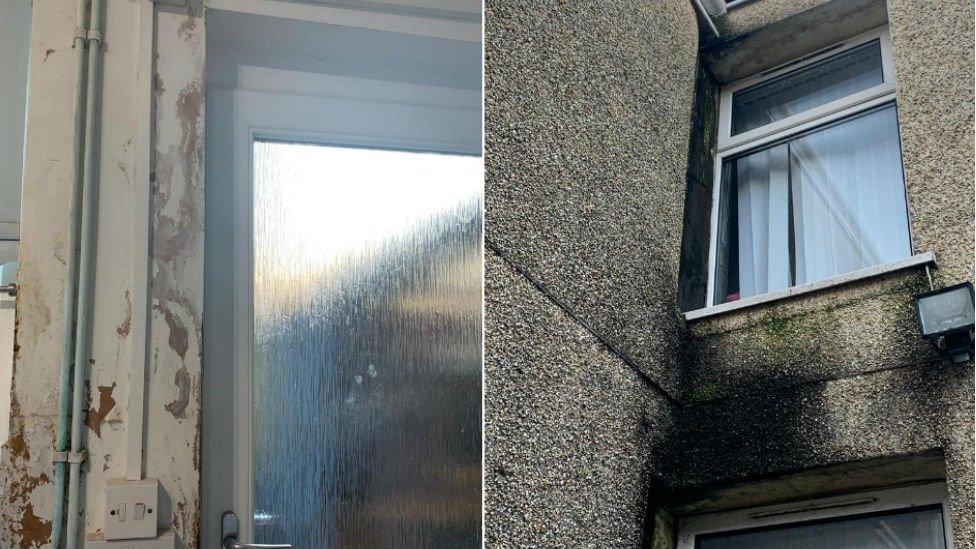Heating: Low quality Wales homes 'pumping money out of door'
- Published
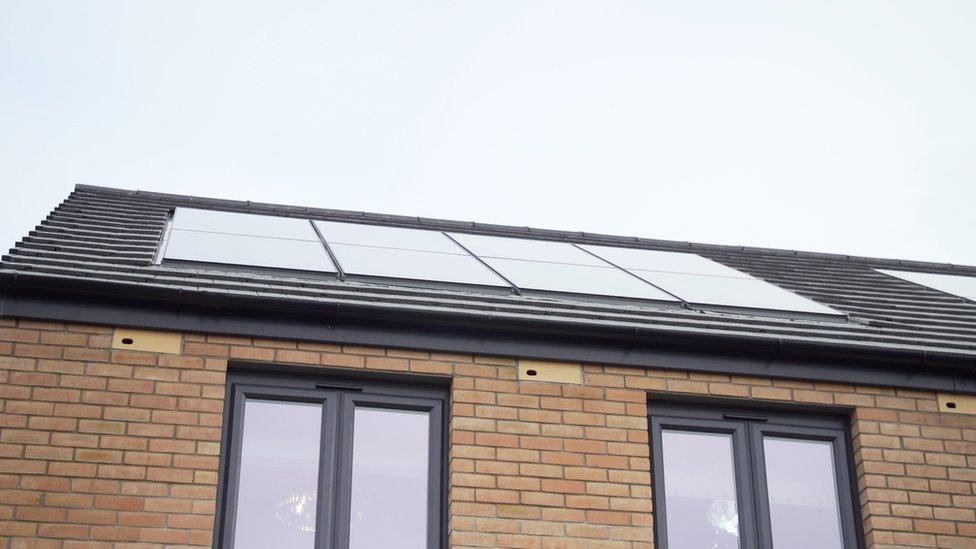
Solar panels are one way to reduce heating bills
Poor quality homes in Wales are "pumping money out of the door", according to a government adviser.
The country's old and inefficient houses are among the worst in western Europe.
It means householders are spending far more on bills than they need to, and causing more harm to the planet.
The Welsh government said it had invested £150m for renewable energy and digital technology to decarbonise social homes.
Through the initiative, it aims to promote how small changes such as insulating walls, draught excluders and monitoring electricity use can save money and reduce emissions.
Jayne Martin, 49, from Pontardawe, Swansea, moved into a new housing association home 18 months ago, which had been insulated and fitted with new windows.
She said unlike her previous homes, which have had issues with energy leaking, her new house can get too warm after her housing association took part in a Welsh government programme to improve energy efficiency.
She said this has allowed her to save money.
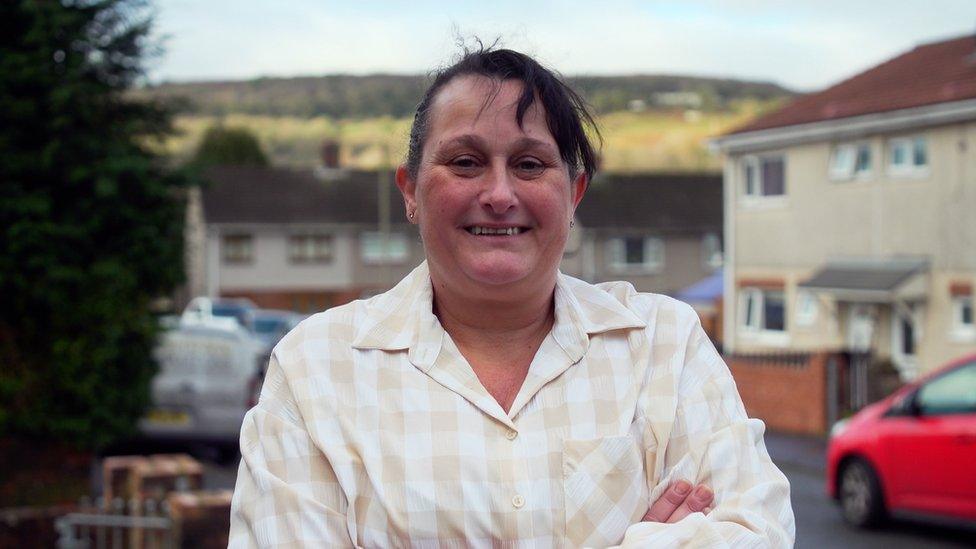
Jayne Martin says her new house can get too warm
Cerys Williams, innovation manger at Sero, which installed the technology in Ms Martin's home, said it meant the company can look at how energy is spent in the home.
"Is it on plug-in appliances? Is it on heating? Is it on hot water?
"We'll be able to let this resident know which areas she can improve and really let her understand how her home uses the energy," she said.
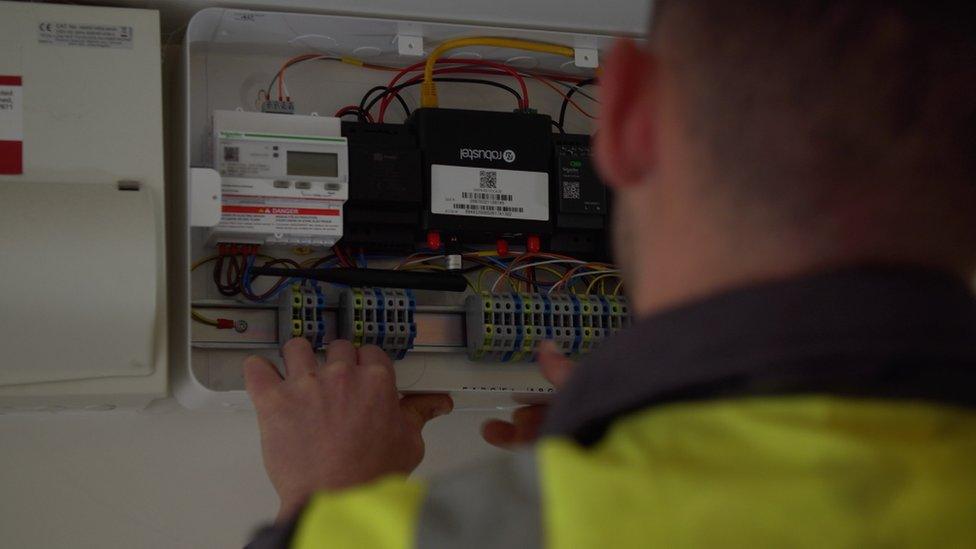
Through small changes, people can save a lot of money in the long run
Wales' homes are among the least energy efficient in Europe, meaning higher energy bills and a greater impact on the environment.
Homes are tested for Energy Performance Certificates (EPCs) to measure how much heat is lost through doors and windows.
The scale ranks homes from A to G, with A the most efficient.
However, 60% of homes in Wales are rated D or below, external, partly because the majority were built before 1982, and a fifth before 1900.
Office for National Statistics data, external from 2021 shows typical energy bills in older homes in Wales were £852 a year.
For typical newly built homes it was £412 - half the cost because much less heat was lost.
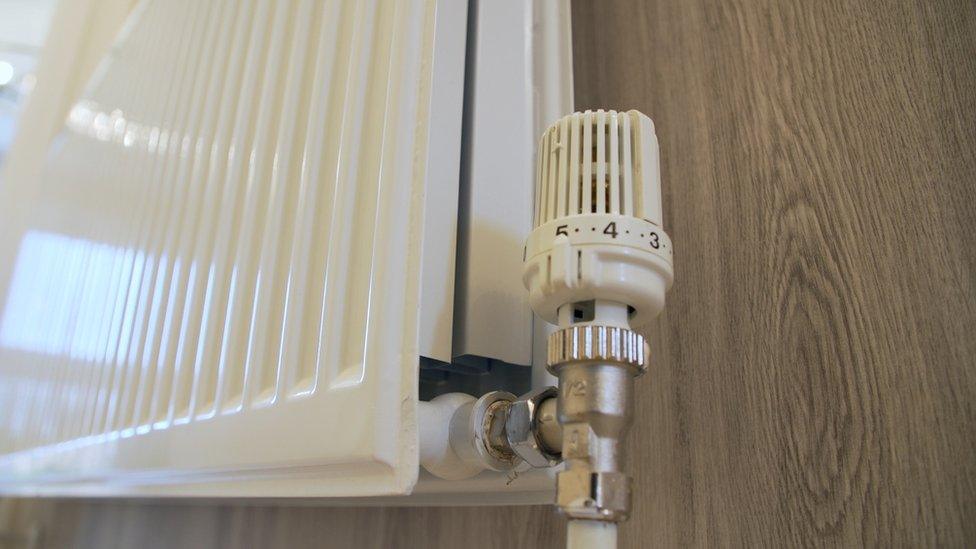
Adjusting heat controllers on radiators is a way to keep bills down
The biggest difference between the cost of heating existing and new homes in Wales was in Gwynedd, where average bills for older homes were £615 more expensive.
Fewer than a quarter of houses in the county had an EPC rating of C or above.
As a result, Gwynedd has the fourth highest average energy bill in England and Wales.
The climate think-tank E3G has suggested purely by making homes more energy efficient by one tier - from D to C - could save households about £500 a year.
Because older homes use more energy to keep warm, it also means they have a larger carbon footprint.
In Wales, a typical new home emits 1.5 tonnes of CO2 on average every year - compared with four tonnes from older houses.
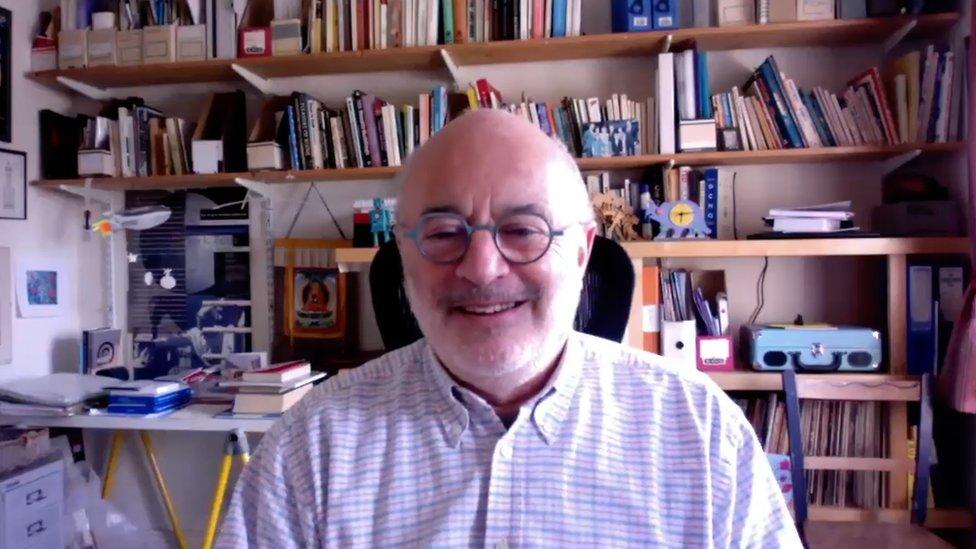
Chris Jofeh is leading efforts to tackle the problem
Heating Welsh homes causes more than 20% of annual greenhouse gas emissions here.
Chris Jofeh leads the Welsh government's panel on cutting carbon emissions from homes.
He said: "Because we are burning gas to heat most of our homes or burning oil or, in some cases, burning coal - that emits huge quantities of greenhouse gas."
He warned that people are "pumping money out of the door" to keep some of the less efficient homes warm, and "that's only going to increase after the price hike in April".
Mr Jofeh has welcomed the Welsh government's efforts to increase efficiency in social housing but said that there's "a lot of work" to be done by "all sorts of organisations" in order to encourage private homes to follow suit.
"We need action to reduce people's need for energy consumption so that they don't have to spend the money, and then the government doesn't have to lend them money to help them pay for it," he added.
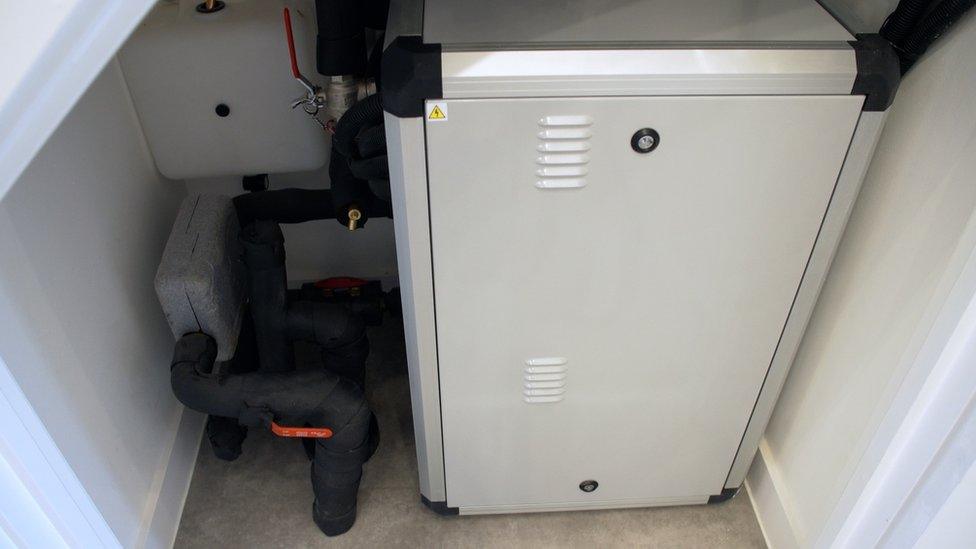
More modern homes are fitted with heat pumps and other devices
At a new homes development site in Rumney, Cardiff, in partnership with Cardiff council, building company Wates is working with Sero to build homes to the EPC A standard.
They are well insulated and fitted with a ground source heat pump, rather than a gas boiler, solar panels and a battery.
"The intention of this really is to try and encourage other private developers, who are building homes for sale to do the same thing," said Cardiff council's housing lead, Lynda Thorne.
"I think everyone is really committed to addressing all of these issues that threaten our planet and I think the fact that they're more expensive to buy could be off-putting, but if you look at it in the long term and it's actually more cost effective."
"There's a real link between decarbonising and potentially reducing people's energy bills," said Jack Wilkinson-Dix, policy officer at the Energy Saving Trust.
Energy efficiency
He said that reducing energy use is "crucial", adding: "In the home, that means improving energy efficiency.
"So, topping up insulation in lofts and walls and floors and installing double glazing. It also means, moving away from fossil fuel heating towards low carbon heating."
The Welsh government said it was "taking a "fabric first" approach, which focuses on insulation and door and window renewal to minimise draughts and heat leakage.
"Our £150m Optimised Retrofit Programme assesses and installs the most appropriate renewable energy and digital technologies to help decarbonise individual social homes," a spokesman added.
It added that it was consulting on the next phase of the Warm Homes Programme, which supported owner occupied and privately rented homes to make efficiency improvements.
- Published10 January 2022
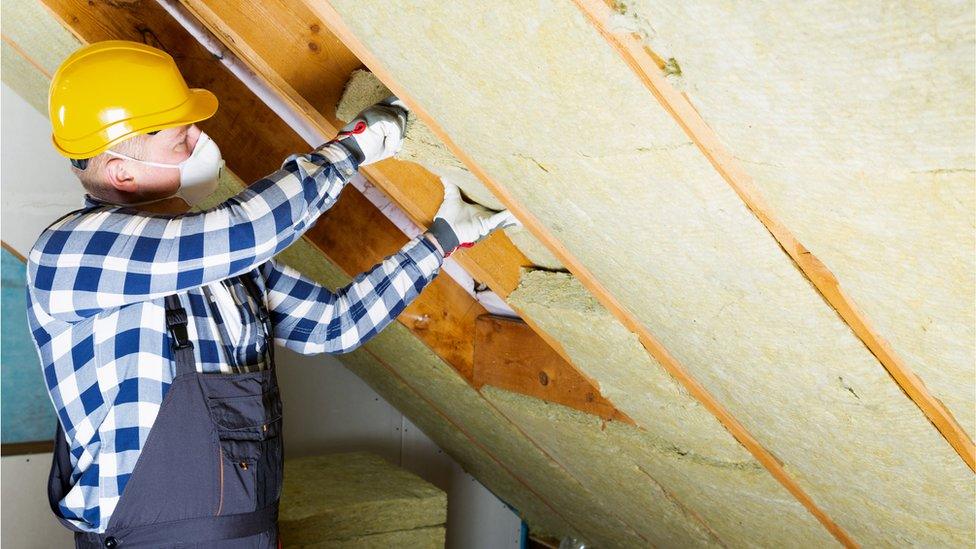
- Published10 November 2021
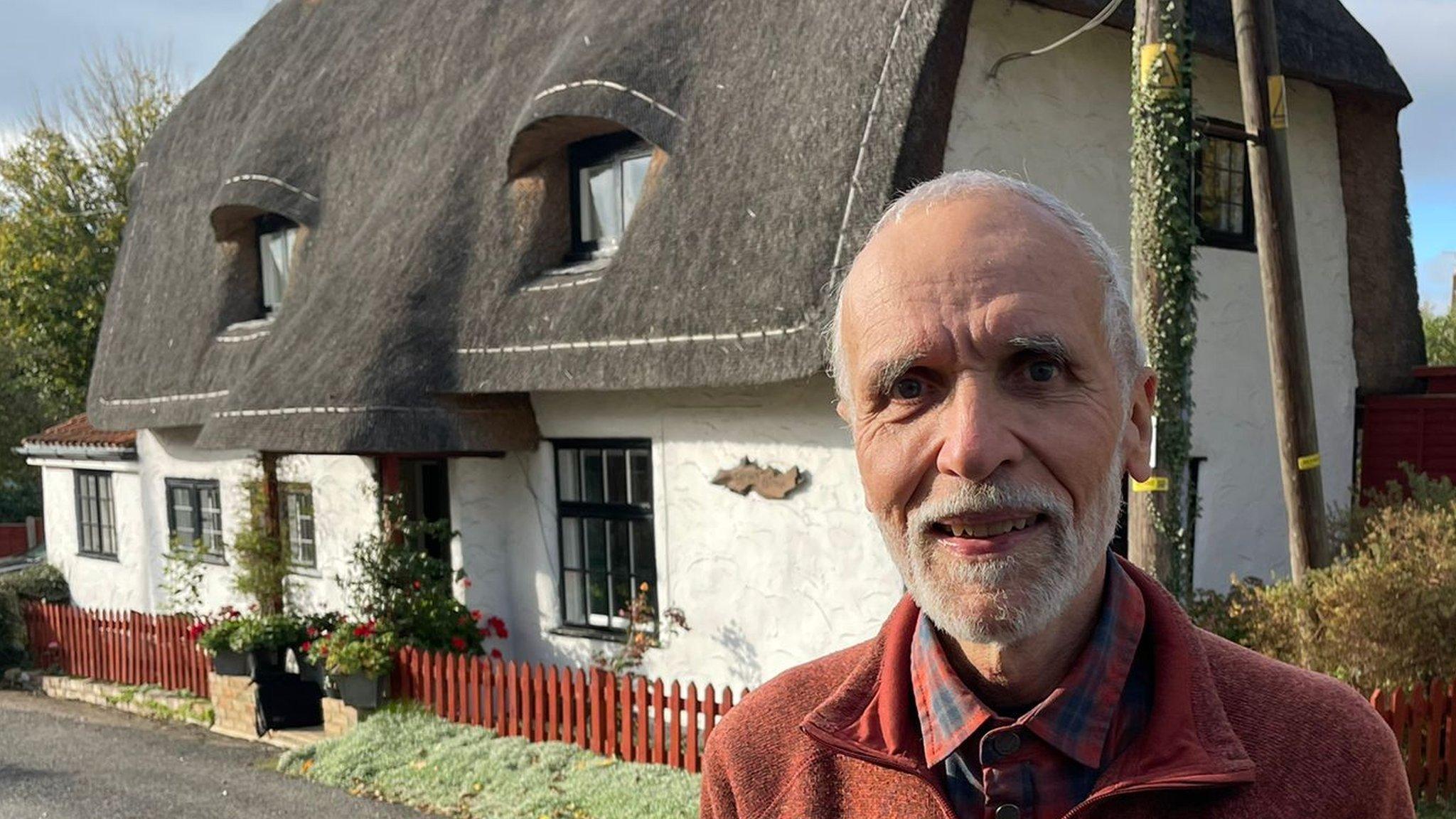
- Published20 June 2021
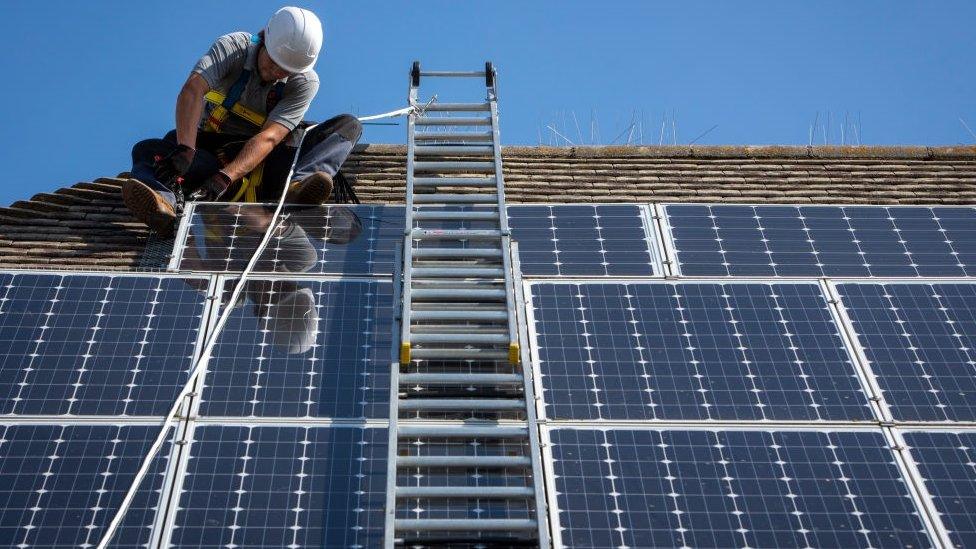
- Published10 December 2020
